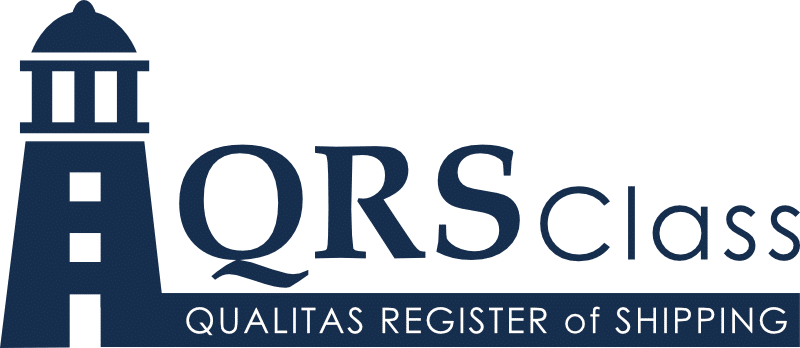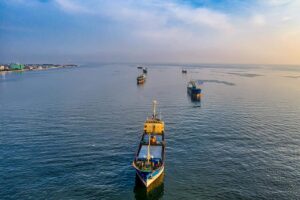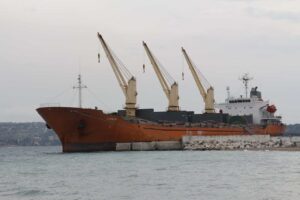As the maritime industry prepares for a significant regulatory shift, stakeholders across the global shipping sector are confronting unprecedented Hong Kong Convention ship recycling regulatory challenges. With the International Hong Kong Convention for the Safe and Environmentally Sound Recycling of Ships (HKC) set to enter into force on June 26, 2025, the industry faces a complex regulatory landscape.
This landmark convention, designed to standardize vessel dismantling practices worldwide, has created friction with existing frameworks like the Basel Convention on transboundary movements of hazardous waste. The resulting regulatory uncertainty threatens to impede progress toward sustainable shipping practices.
The Evolving Maritime Regulatory Landscape
Conflicting International Frameworks
The Basel Convention, established in 1989, regulates international transport of hazardous waste through a system of notifications and consent requirements between states. Its application to end-of-life vessels stems from classifying ship hulls as hazardous waste due to materials like asbestos and PCBs.
This generalized approach contrasts sharply with the Hong Kong Convention ship recycling regulatory framework adopted in 2009 under the International Maritime Organization (IMO). The HKC proposes a specialized system specifically designed for vessels, considering their complete lifecycle and the flag state’s responsibilities.
The HKC reached a milestone in 2023 when Bangladesh and Liberia ratified it, meeting the required tonnage and country thresholds. However, practical implementation faces obstacles due to contradictory regulatory interpretations.
Critical Points of Regulatory Conflict
A detailed examination reveals three major areas of tension between these regulatory frameworks. First, the legal definition of a vessel destined for recycling differs significantly. Under Basel, ships are classified as “hazardous waste” from the moment they begin their final journey, while the HKC maintains their status as “vessels” until they reach the recycling facility.
Second, control mechanisms vary substantially. Basel operates through notifications between states, while the HKC relies on certificates issued by flag states. This divergence creates administrative duplication and uncertainty for shipping companies navigating Hong Kong Convention ship recycling regulatory requirements.
Third, geographical jurisdiction presents another challenge. The HKC applies to vessels from ratifying nations, while Basel claims universal jurisdiction over cross-border movements of waste, creating overlapping and sometimes contradictory obligations.
Industry Initiatives Addressing Regulatory Harmonization
BIMCO’s Strategic Ship Recycling Alliance
Recognizing these Hong Kong Convention ship recycling regulatory challenges, BIMCO launched a coalition in November 2024. This alliance integrates recycling associations from India, Bangladesh, Pakistan, and Turkey, along with key players like GMS and Wirana Shipping.
The alliance aims to develop unified protocols for implementing the HKC, facilitating the transition of informal shipyards toward international standards. Nikos Mikelis, former IMO official and HKC architect, leads this initiative, emphasizing the need to “connect all stakeholders within a predictable framework.”
This coalition operates on two fronts: providing technical training to modernize facilities in South Asia and engaging in political advocacy to resolve legal contradictions. An early achievement was the IMO’s HKSRC.2/Circ.1 (October 2024), which urges nations to recognize HKC certificates as equivalent to Basel requirements.
Diplomatic Efforts at IMO and Basel COP-17
BIMCO and the International Chamber of Shipping (ICS) submitted a joint document to the IMO in March 2024, supported by India, Pakistan, Norway, and Bangladesh. This proposal addresses Hong Kong Convention ship recycling regulatory challenges by requesting:
- Explicit recognition of the HKC as a specialized regime for vessels, exempting them from additional Basel procedures
- Harmonization of definitions regarding “hazardous waste” and “ships ready for recycling”
- Mechanisms for resolving jurisdictional disputes between states party to both conventions
Simultaneously, the Alliance is preparing an intervention for the upcoming Basel Convention COP-17 (scheduled for late 2025). They seek amendments that would exempt HKC-certified vessels from redundant procedures under Basel.
David Loosley, BIMCO’s CEO, emphasizes that “without these reforms, the HKC will remain ineffective, unable to fulfill its purpose of promoting safety and sustainability.”
Operational and Financial Implications
Legal Exposure for Shipping Companies
The current dual regulatory system exposes shipowners to potentially contradictory sanctions. For example, a vessel with proper HKC certification could be detained during transit by countries strictly enforcing Basel, citing lack of proper notifications.
Legal cases like Seatrade (fined €5.7 million in the Netherlands for sending vessels to India without Basel authorizations) demonstrate strict judicial interpretations, even when recycling facilities meet HKC standards. These Hong Kong Convention ship recycling regulatory inconsistencies create significant compliance challenges.
These risks intensify in European waters, where EU Regulation 1013/2006 implements Basel with additional requirements. This creates a “triple regulatory system” (HKC, Basel, EU) that increases compliance costs by up to 15%, according to Lloyd’s List estimates.
Challenges for Recycling Facilities
Currently, only 30% of global dismantling capacity (primarily in Turkey and China) complies with HKC standards. In India, Bangladesh, and Pakistan—representing 70% of the market—less than 10% of yards have certification. Facility modernization requires average investments of $5-10 million per installation, according to the Ship Recycling Association of India.
Regulatory uncertainty hinders access to financing. Financial institutions like ING and DNB have suspended credit for upgrading projects in Asian shipyards until the conflicts between conventions are resolved, further complicating Hong Kong Convention ship recycling regulatory compliance.
Strategic Outlook and Recommendations
Post-2025 Scenarios
Industry analysts project three potential trajectories as the maritime sector grapples with Hong Kong Convention ship recycling regulatory challenges:
- Successful Harmonization: If the IMO and Basel COP-17 succeed in integrating the conventions, shipyard modernization would accelerate, creating a unified market by 2030.
- Regulatory Fragmentation: Countries might apply divergent interpretations, creating “preferred flags” for recycling and increasing logistical costs for end-of-life vessel management.
- Regulatory Stagnation: Persistent contradictions could drive shipping companies to register vessels under flags of non-HKC countries, undermining the convention’s environmental and safety objectives.
Strategic Recommendations for Key Stakeholders
For governments facing Hong Kong Convention ship recycling regulatory implementation:
- Establish binational working groups between flag states and ship-receiving countries
- Adopt temporary moratoriums on applying Basel to HKC-certified vessels during the transition phase
- Develop clear guidance for port authorities on handling vessels under dual regulatory regimes
For shipowners navigating complex compliance requirements:
- Include dual compliance clauses (HKC + Basel) in recycling contracts
- Participate in Ship Recycling Alliance pilot programs for preferential access to certified yards
- Develop comprehensive documentation systems that satisfy both regulatory frameworks
For recycling facilities adapting to new standards:
- Pursue intermediate certifications (such as ISO 30000:2019) that facilitate future HKC compliance
- Collaborate with financial institutions on public-private co-investment models for facility modernization
- Engage with flag state inspectors early in the certification process to address potential compliance gaps
Conclusion: Navigating the Path Forward
The imminent enforcement of the Hong Kong Convention represents a crucial advancement for maritime sustainability, but its success depends on urgently resolving contradictions with the Basel framework. The industry faces significant Hong Kong Convention ship recycling regulatory challenges that require coordinated action.
BIMCO’s initiative through the Ship Recycling Alliance and international advocacy efforts charts a viable path toward regulatory coherence. However, greater political will and technical cooperation are essential to prevent environmental and safety achievements from being undermined by legal technicalities.
The coming year will determine whether the ship recycling industry can establish itself as a pillar of the global circular economy, with proper implementation of Hong Kong Convention ship recycling regulatory standards serving as the foundation for this transformation.
As stakeholders work toward resolution, the maritime industry must maintain focus on the ultimate goals of these regulations: safer working conditions, reduced environmental impact, and truly sustainable end-of-life management for the global fleet.
Expert Guidance for Hong Kong Convention Compliance
As the maritime industry navigates these complex Hong Kong Convention ship recycling regulatory challenges, QRS Class stands ready to provide essential support through our comprehensive suite of specialized services. Our experienced team offers complete Ship Classification services, covering operational vessels, construction materials, and onboard systems to ensure full compliance with emerging regulations.
QRS Class performs all necessary technical reviews, audits, and surveys for statutory certifications, including those specifically related to the Hong Kong Convention and Basel requirements. Our expert consultants provide invaluable technical documentation development for ships facing end-of-life decisions, including specialized stability calculations and regulatory compliance planning.
With our materials, products, and processes approval services, we help stakeholders adapt to new standards efficiently. Contact QRS Class today to ensure your organization is fully prepared for the regulatory changes ahead—partner with us to transform compliance challenges into strategic advantages in the evolving maritime landscape.
References:
- https://www.offshore-energy.biz/bimco-ics-urge-imo-to-resolve-legal-inconsistencies-in-ship-recycling-conventions/
- https://www.shippinginbox.com/bimco-launches-ship-recycling-alliance-to-propel-safe-and-sustainable-ship-disposal/
- https://mfame.guru/challenges-in-implementing-the-hong-kong-convention-for-ship-recycling/
- https://www.hilldickinson.com/insights/articles/clash-conventions-ship-recycling-debate-continues
- https://www.porttechnology.org/news/bimco-urges-imo-to-resolve-legal-inconsistencies-in-ship-recycling/
- https://www.rivieramm.com/news-content-hub/news-content-hub/conflicting-regulations-challenge-ship-recycling-industry-80856




